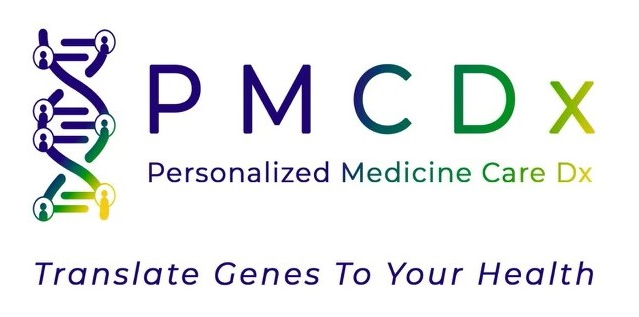| ATM |
Biallelic pathogenic variants in ATM have been associated with ataxia-telangiectasia, which is associated with an increased risk for leukemia and lymphoma. |
PubMed: 20301790; OMIM: 607585, 208900 |
| BLM |
Biallelic pathogenic variants in the BLM gene cause Bloom's syndrome. Individuals with Bloom's syndrome are at a greatly increased risk for many types of cancer, including leukemia and lymphoma. Cancers often occurring at younger than typical ages. Patients with Bloom's syndrome are hypersensitive to some forms of cancer treatment. Additionally, carriers of heterozygous pathogenic BLM variants may be at a small increased risk for breast cancer, as well as others (low/moderate penetrance). However, additional studies are needed to confirm an association. |
PubMed: 20301572, 19432957, 23404160, 24733792, 26358404; OMIM: 210900 |
| RUNX1 |
Heterozygous pathogenic variants in the RUNX1 gene are associated with familial platelet disorder and an increased risk for myeloid malignancies. |
PubMed: 28179279, 18173751, 11830488 |
| CEBPA |
Heterozygous pathogenic variants in the CEBPA gene are associated with an increased risk for myeloid malignancies. |
PubMed: 18173751, 10508512 |
| GATA2 |
Autosomal dominant pathogenic variants in GATA2 are associated with GATA2 deficiency and Emberger syndromes, both of which increase an individual's risk for myelodysplasia and acute myeloid leukemia. |
PubMed: 24227816, 28179280; OMIM 137295, 614038 |
| MSH6 |
Biallelic pathogenic variants in MSH6 have been associated with constitutional mismatch repair deficiency syndrome (CMMRD), which increases the risk for lymphoma and leukemia. At this time, carriers of heterozygous MSH6 pathogenic variants are not believed to have an increase for hematologic malignancy. |
PubMed: 20301390, 22692065; OMIM: 120438 |
| HRAS |
Heterozygous pathogenic variants in HRAS cause Costello syndrome. There is some preliminary evidence that germline pathogenic HRAS variants may increase the risk for leukemia; however, additional studies are needed to confirm an association. |
PubMed: 20301680, 25742478; OMIM: 190020 |
| EPCAM |
Autosomal dominant pathogenic variants in EPCAM cause Lynch syndrome. While Lynch syndrome has been associated with an increased risk for hematopoietic malignancies in some studies, additional research is needed to determine whether Lynch syndrome caused by variants in EPCAM influences susceptability. |
PubMed: 23730225, 20301390 |
| MLH1 |
Biallelic pathogenic variants in MLH1 have been associated with constitutional mismatch repair deficiency syndrome (CMMRD), which increases the risk for lymphoma and leukemia. At this time, carriers of heterozygous MLH1 pathogenic variants are not believed to have an increase for hematologic malignancy. |
PubMed: 20301390, 22692065; OMIM: 120436 |
| MSH2 |
Biallelic pathogenic variants in MSH2 have been associated with constitutional mismatch repair deficiency syndrome (CMMRD), which increases the risk for lymphoma and leukemia. At this time, carriers of heterozygous MSH2 pathogenic variants are not believed to have an increase for hematologic malignancy. |
PubMed: 20301390, 22692065; OMIM: 120437 |
| NBN |
Heterozygous pathogenic variants in NBN (also known as NBS1) have been associated with a number of malignancies including melanoma, non-Hodkins lymphoma, medulloblastoma, and colorectal, prostate, and breast cancers . Other studies have shown possible associations with aplastic anemia and acute lymphoblastic leukemia. Biallelic pathogenic variants in NBN have been associated with Nijmegen Breakage syndrome (NBS). Individuals with NBS generally have progressive intellectual disability, growth retardation and immunodeficiency, and are at an increased risk for a variety of cancers, including lymphoma, glioma, and medulloblastoma. |
PubMed: 14973119, 15185344, 16474176, 16770759, 18079974, 19908051, 21514219,15338273,11325820, 20301355; OMIM: 609135, 251260 |
| NF1 |
Autosomal dominant pathogenic variants in NF1 cause Neurofibromatosis Type 1, which is associated with several types of benign tumors and cancer, including an increased risk for leukemia. |
PubMed: 17636453, 20301288, 9639526, 27787920; OMIM: 613113 |
| PMS2 |
Biallelic pathogenic variants in PMS2 have been associated with constitutional mismatch repair deficiency syndrome (CMMRD), which increases the risk for lymphoma and leukemia. At this time, carriers of heterozygous PMS2 pathogenic variants are not believed to have an increase for hematologic malignancy. |
PubMed: 20301390, 22692065; OMIM: 120438 |
| TERC |
Autosomal dominant pathogenic variants in TERC have been associated with dyskeratosis congenita, which is associated with an increased risk for bone marrow failure, myelodysplastic syndrome, and leukemia. |
PubMed: 20301779 |
| TERT |
Both heterozygous and biallelic pathogenic variants in TERT have been associated with dyskeratosis congenita, which is associated with bone marrow failure, myelodysplastic syndrome, and leukemia. Patients with autosomal dominant (heterozygous) TERT pathogenic variants tend to have milder disease than those with the autosomal recessive (biallelic) form. |
PubMed: 20301780 |
| TP53 |
Heterozygous pathogenic variants in the TP53 gene are associated with Li-Fraumeni syndrome, a condition that increases risk for many types of cancer. |
PubMed: 20301488, 26014290, 2614290; OMIM: 151623, 191170 |
